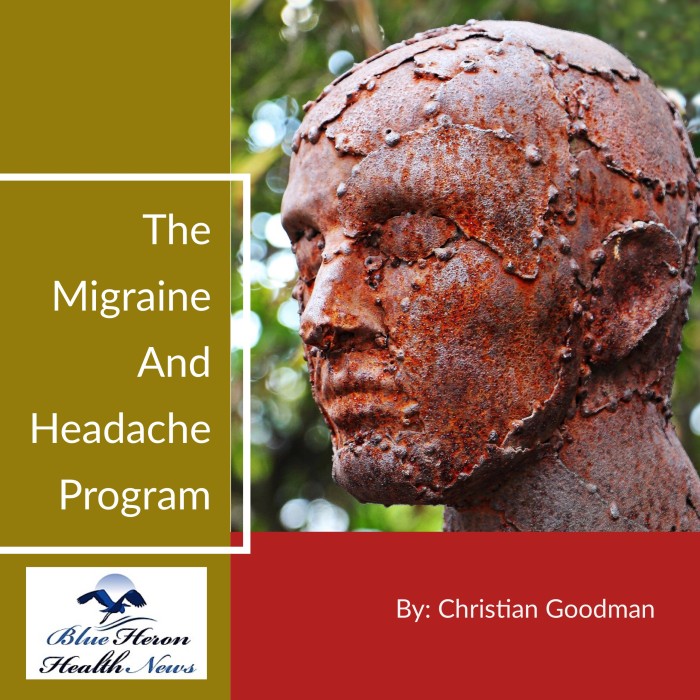
The Migraine And Headache Program By Christian Goodman This program has been designed to relieve the pain in your head due to any reason including migraines efficiently and effectively. The problem of migraine and headaches is really horrible as it compels you to sit in a quiet and dark room to get quick relief. In this program more options to relieve this pain have been discussed to help people like you.
What is the role of GABA in migraine prevention?
Gamma-aminobutyric acid (GABA) plays an important role in the prevention and management of migraines due to its ability to regulate nervous system activity and promote a calming effect in the brain. GABA is the primary inhibitory neurotransmitter in the central nervous system, meaning it reduces the excitability of neurons and helps to prevent overstimulation, which can be a trigger for migraines.
Here’s how GABA is involved in migraine prevention:
1. Reducing Neuronal Excitability
- Hyperexcitation and Migraines: Migraines are often associated with cortical spreading depression (CSD), a wave of hyperactivity in the brain followed by a period of inhibition. This over-excitation of neurons can trigger the pain and symptoms associated with migraines.
- GABA’s Inhibitory Effect: GABA helps counteract this over-excitation by inhibiting neural activity. By calming hyperactive neurons, GABA reduces the likelihood of a migraine being triggered. Low GABA levels or impaired GABA function can lead to increased neural excitability, potentially increasing the frequency and intensity of migraines.
2. Managing Stress and Anxiety
- Stress as a Migraine Trigger: Emotional stress is a well-known trigger for migraines. Stress increases the release of excitatory neurotransmitters like glutamate, which can lead to neuronal hyperactivity and, consequently, migraines.
- GABA’s Role in Stress Reduction: GABA has a calming effect on the brain and helps regulate the body’s response to stress. By promoting relaxation and reducing anxiety, GABA helps mitigate one of the common triggers for migraines.
3. Regulating Pain Perception
- GABA and Pain Modulation: GABA plays a role in the regulation of pain perception. By inhibiting neural pathways associated with pain processing, GABA can help reduce the intensity of migraine pain.
- GABA Dysfunction in Migraines: Research suggests that people with migraines may have impaired GABAergic function, leading to an increased sensitivity to pain. Restoring GABA function may help alleviate migraine-related pain.
4. GABA and Medications for Migraine Prevention
- GABAergic Medications: Some medications used for migraine prevention, such as topiramate and valproate, work by enhancing GABAergic activity in the brain. These medications increase GABA levels or enhance GABA’s effects on neurons, which can help reduce the frequency and severity of migraines.
- Benzodiazepines: Although not commonly used as a long-term treatment for migraines, benzodiazepines (which enhance GABA activity) are sometimes prescribed to manage acute migraine-related anxiety or to help with sleep during an attack. However, these are typically used sparingly due to the risk of dependency.
5. Potential GABA Supplements
- GABA Supplements: Some people use GABA supplements to boost their levels of this inhibitory neurotransmitter in hopes of reducing anxiety, promoting relaxation, and potentially preventing migraines. However, it’s important to note that the effectiveness of oral GABA supplements is still debated, as it is unclear how much GABA crosses the blood-brain barrier when taken in supplement form.
- Natural GABA Boosters: Other natural supplements, such as L-theanine (found in green tea) and magnesium, may help increase GABA levels or improve GABAergic function. These supplements are sometimes recommended as part of a migraine prevention plan, particularly for people who experience stress-related migraines.
6. Balancing Excitatory and Inhibitory Neurotransmitters
- Glutamate-GABA Balance: Migraines may result from an imbalance between excitatory neurotransmitters like glutamate and inhibitory neurotransmitters like GABA. In people prone to migraines, glutamate levels may be too high, leading to neuronal hyperactivity. GABA helps restore balance by inhibiting excessive glutamate activity, reducing the likelihood of a migraine being triggered.
7. GABA and Sleep Regulation
- Improving Sleep Quality: Sleep disturbances, including poor sleep quality or insomnia, are common triggers for migraines. GABA plays a key role in promoting relaxation and sleep by calming neural activity. Adequate GABA levels can help improve sleep quality, reducing the risk of sleep-related migraines.
Conclusion
GABA is crucial in migraine prevention due to its ability to reduce neuronal excitability, manage stress, modulate pain perception, and regulate sleep. Enhancing GABAergic function through medications, lifestyle changes, or supplements may help prevent migraines or reduce their frequency and severity. However, it’s essential to work with a healthcare provider to determine the most effective approach for your specific condition, as GABA-related therapies may not be suitable for everyone.

The Migraine And Headache Program By Christian Goodman This program has been designed to relieve the pain in your head due to any reason including migraines efficiently and effectively. The problem of migraine and headaches is really horrible as it compels you to sit in a quiet and dark room to get quick relief. In this program more options to relieve this pain have been discussed to help people like you.